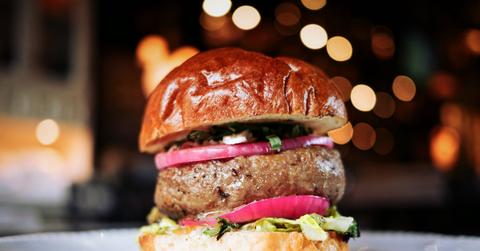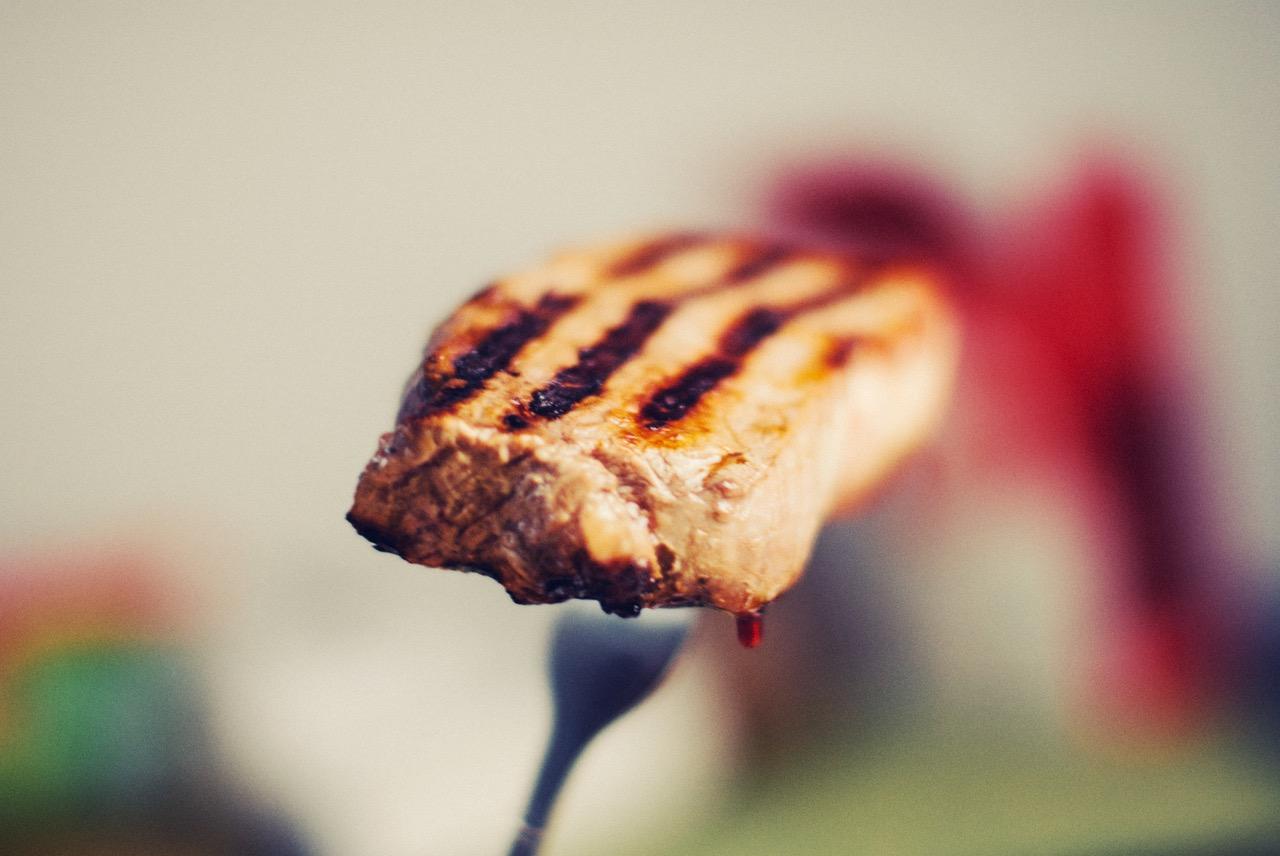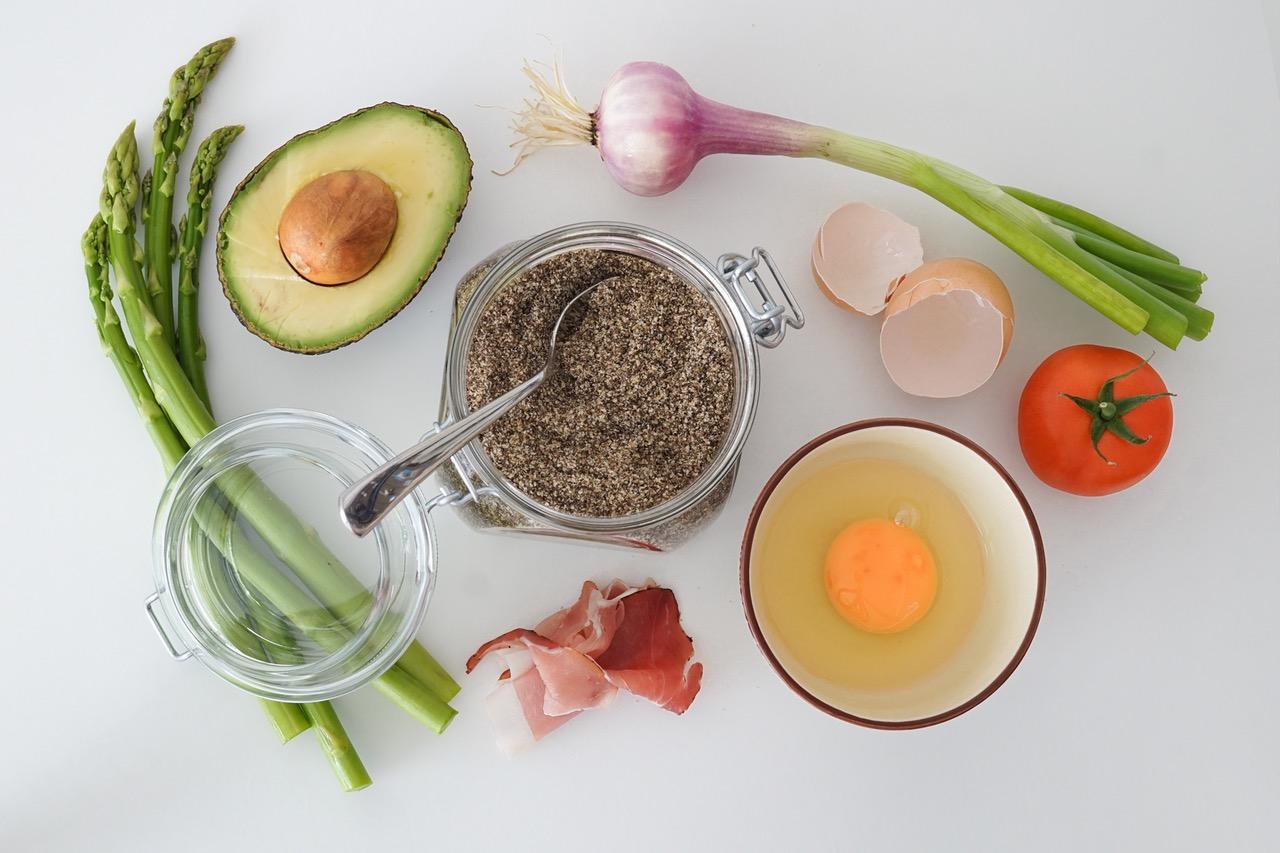8 Things You Should Know About Lab-Grown Meat
When it comes to sustainable food, lab-grown meat might be the future. But what exactly is it? We're here to break down the science and talk about the new kind of meat that might be on your dinner plate as soon as 2020.
Updated May 21 2019, 4:05 p.m. ET
We all know that the food we eat affects our bodies, but more than that, it can also affect our environment. For those of us who consume animal products and byproducts, such as meat, dairy, eggs, or fish, we're likely aware that where our food comes from, how it's produced, and what conditions the animals live in can all impact the eco-system long-term. While buying free-range, local, or organic are all great ways to ensure that we're being kind to the planet with our purchases, it's not the only option we have for the future.
Scientists are currently working on lab-grown meat that has the potential to change the way we eat in a huge way. This field is often referred to as "cellular agriculture," and it works like this: Scientists use biotechnology to create food we typically get from animals, such as beef, chicken, fish, eggs, or milk. These products are not soy-based or nut-based like common vegan substitutes. Instead, they start with animal cells, but are created in the lab, not on the farm.
Awesome, right? Here's what you need to know:
1. Mark Post made the first lab-grown burger.
Lab grown meat is definitely a recent invention, and in fact, hasn't reached the public market yet. Mark Post, of Maastrich University in the Netherlands, is credited with creating the first lab-grown beef burger back in 2013. It was made up of 20,000 individually grown muscle strands, all from the lab.
2. The science behind how it works is fascinating.
According to Wired, this is how the process breaks down. First, scientists extract stem cells from a small sample of muscle tissue. Where does this muscle tissue come from? The animal source, such as a cow or chicken. Then, scientists allow the stems to differentiate into muscle cells. Eventually, in the lab, these combine to create pieces of muscle tissue. Combine these pieces of muscle tissue with cultured fat tissue, and there you have it: lab-grown meat.
3. Lab-grown meat cuts down on greenhouse gases.
As of right now, advocates for lab-grown meat believe that the mass production and move toward this sustainable farm-meat replacement could make a huge impact on our greenhouse gases. In fact, a 2011 Oxford University study suggests that it can eliminate our greenhouse gas emissions by as much as 96%.
4. Lab-grown meat is also great for our water usage.
Lab-grown meat has the potential to make a huge impact on our water consumption, too. Right now, as Maddie Stone explains at Gizmodo, livestock suck up a huge amount of water. If we switch to lab-grown meat, we can cut our water consumption by between 82 and 96% less, depending on the animal in question.
5. Production volume is expected to increase by 2020.
Today, you'll be hard-pressed to find any lab-grown meat to try yourself. In fact, even if you could find it, the retail value is going to be steep. According to The Washington Post, when Post released the first lab-grown beef burger in 2013, it retailed for about $333,000 for a single patty. But don't worry: As production increases, experts suggest it'll retail for about $10 a patty in the year 2020, which isn't too bad.
6. It can include a surprising variety of animal products.
As of right now, scientists have successfully experimented with chicken and beef. However, in years to come, they're hoping to create all kinds of animal products, including sausages, hot dogs, and bacon.
7. It's unchartered territory in terms of regulations.
A big question for both advocates and skeptics of lab-grown meat comes down to regulation. According to Science, we know that the FDA typically regulates all food, so we know what is safe to consume. But because lab-grown meat involves technology, people aren't yet sure what place the FDA will have in its regulation for the general market. As of right now, according to Science, it appears that lab-cultured meats are similar to what we already have in that they're posed to have no additional hazards.
8. Vegans and vegetarians are on the fence about the ethics.
People choose not to eat animal products for a number of reasons, ranging from health, ethics, to personal preference. While some people who abstain from animal products and byproducts are excited about the advances of lab-grown meat and are open to trying it in the future, some vegans and vegetarians are not open to eating it themselves. When these products eventually go mainstream, definitely don't assume the vegetarian in your life will be partaking, but for some people who currently cut meat from their diet, this innovation might change that decision.







